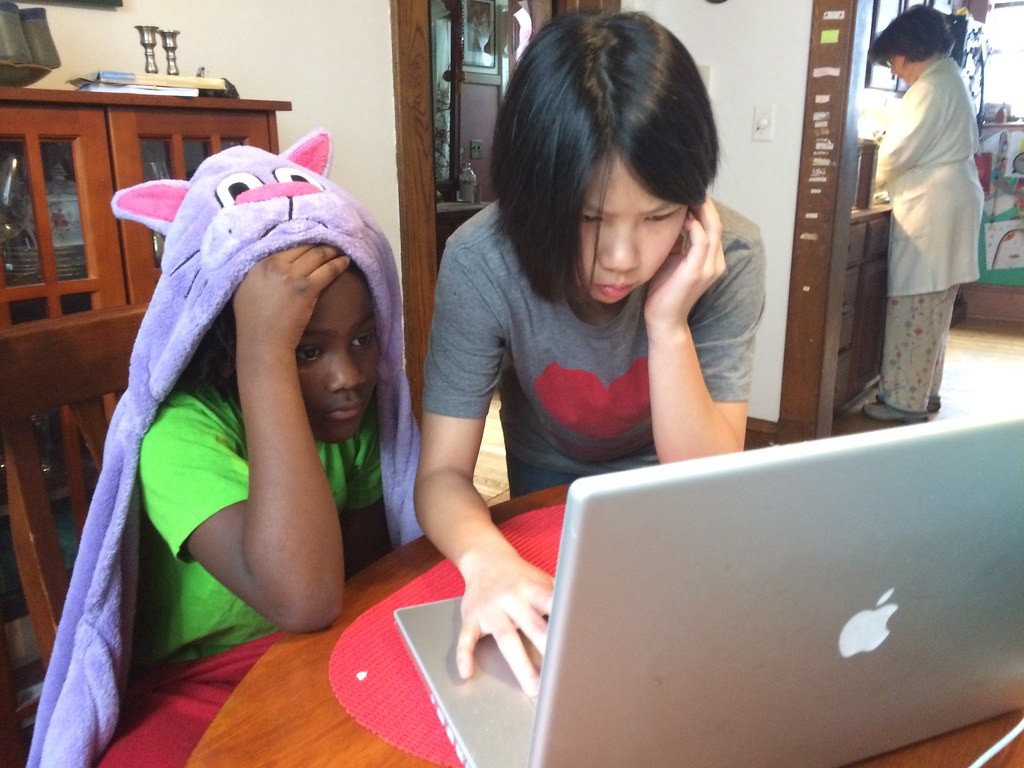Medium: In light of Covid-19, maybe it’s time we revisit the debate around the internet as a human right
Posted April 23, 2020
If there’s one thing this crisis has made abundantly clear, it’s this: the internet is no longer a luxury, it’s now a necessity.
Posted April 23, 2020
 If there’s one thing this crisis has made abundantly clear, it’s this: the internet is no longer a luxury, it’s now a necessity. We’re turning to the internet in record numbers to work, teach our kids, and inform ourselves of the latest public health news. It’s also helped make this whole thing just a bit more bearable. Whether it’s catching up with our friends over Facetime or easing our mind with the latest Netflix sensation, the internet has helped us maintain our collective sanity.
If there’s one thing this crisis has made abundantly clear, it’s this: the internet is no longer a luxury, it’s now a necessity. We’re turning to the internet in record numbers to work, teach our kids, and inform ourselves of the latest public health news. It’s also helped make this whole thing just a bit more bearable. Whether it’s catching up with our friends over Facetime or easing our mind with the latest Netflix sensation, the internet has helped us maintain our collective sanity.
Unfortunately, for far too many Canadians, internet accessibility is still an issue. This is especially true for low-income Canadians and rural Canadians.
Almost half of Canadian households with an annual income of $30,000 or less do not have access to high-speed internet. According to data from ACORN Canada, an activist group for low to moderate-income Canadians, internet cost is still a huge barrier for adoption.
When speaking to respondents who didn’t have the internet at home, over 70% of respondents said that they found the cost to be too high. For the people who do have internet, over 35% are sacrificing necessities like clothing, medication, and food to afford access.
Over the past few years, the Liberal government has taken strong steps to address this digital divide. For example, in 2018 they launched their connecting Families Program, providing National Child Benefit Recipients with 10mbs internet & 100 GB usage for $10 a month. This program has helped over 220,000 households — with up to 600,000 people expected to benefit from the program.
However, critics of the program note that its focus on families means that low-income seniors and single-occupant households miss out. With over 1.2 million households in Canada being classified as low-income, helping 220,000 households only meets about 20% of the problem.
In addition to low-income Canadians, rural Canadians are also struggling to connect. While about 16% of all households in Canada don’t have access to high-speed internet, that number rises to 63% for rural households. Many rural residents depend on libraries and local schools for wifi — something that just isn’t possible right now.
As we move out of this crisis, we must aim for universal access for all residents. Because right now, the people falling through the cracks are suffering in a multitude of ways.
Take education for example. The CBC recently published a story about how thousands of students in Ottawa don’t have stable home-wifi or a computer to work on. While the school board is taking steps to equip these students with the necessary supplies in the coming weeks, their current solution for students without access is to use wi-fi hotspots in school parking lots.
Ottawa isn’t alone here, in the States, for example, there are reports of school boards dispatching school buses equipped with wi-fi to low-income neighbourhoods. I don’t blame these school-boards for doing their best to provide resources in the middle of an emergency. But in rich, industrialized nations like Canada or the United States: they shouldn’t have to.
Covid-19 has also challenged one of our fundamental freedoms: the ability to come together and protest. In the past, physical protests and organizing have allowed our poor and rural populations the opportunity to voice their concerns. But what happens when physical distancing prevents them from congregating offline and a lack of internet access prevents them from going online? In a country where physical distancing measures could be in place for the next 12–18 months, how can they express their concerns when the public square becomes digital?
If there’s one silver lining around a global crisis, it’s that we now have the opportunity to dramatically alter our status quo. In the years after the Great Depression, our American counterparts introduced the SEC, social security, the minimum wage, and a massive infrastructure overhaul. Our government brought us the CBC, The Bank of Canada, and employment insurance: all critical to Canadian life today.
As we move out of this pandemic, once-radical policies like a UBI or a wealth tax will be openly debated across the political aisle. Let’s ensure that universal internet access is a priority. Because in a rich, industrialized nation like Canada: the internet should be a right, not a luxury. And when we fail to live up to these ideals, we have to push our institutions to do more and ensure no one is left behind.
***
Article by Ankur Pandit for Medium
